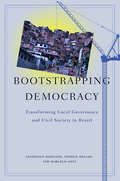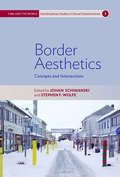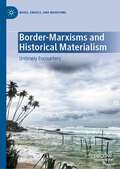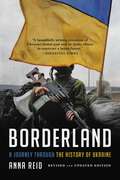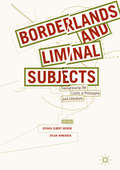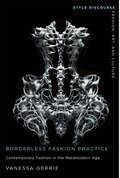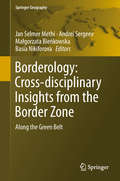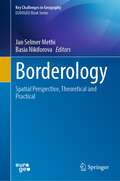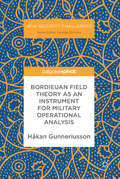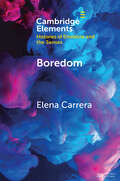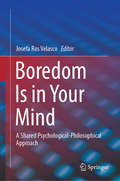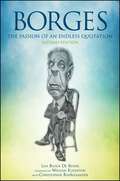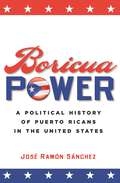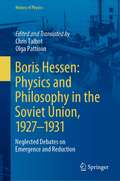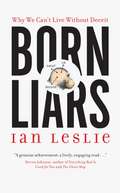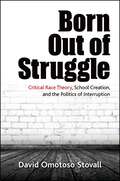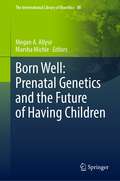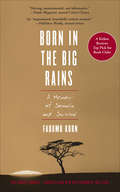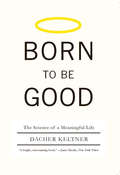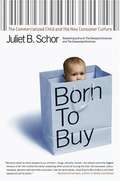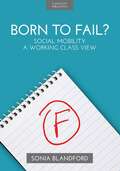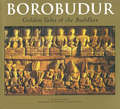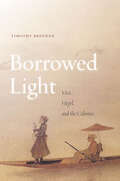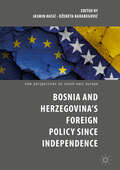- Table View
- List View
Bootstrapping Democracy
by Gianpaolo Baiocchi Patrick Heller Marcelo K. SilvaDespite increasing interest in how involvement in local government can improve governance and lead to civic renewal, questions remain about participation's real impact. This book investigates participatory budgeting-a mainstay now of World Bank, UNDP, and USAID development programs-to ask whether its reforms truly make a difference in deepening democracy and empowering civil society. Looking closely at eight cities in Brazil, comparing those that carried out participatory budgeting reforms between 1997 and 2000 with those that did not, the authors examine whether and how institutional reforms take effect. Bootstrapping Democracyhighlights the importance of local-level innovations and democratic advances, charting a middle path between those who theorize that globalization hollows out democracy and those who celebrate globalization as a means of fostering democratic values. Uncovering the state's role in creating an "associational environment," it reveals the contradictory ways institutional reforms shape the democratic capabilities of civil society and how outcomes are conditioned by relations between the state and civil society.
Border Aesthetics: Concepts and Intersections (Time and the World: Interdisciplinary Studies in Cultural Transformations #3)
by Johan Schimanski Stephen F. WolfeFew concepts are as central to understanding the modern world as borders, and the now-thriving field of border studies has already produced a substantial literature analyzing their legal, ideological, geographical, and historical aspects. Such studies have hardly exhausted the subject's conceptual fertility, however, as this pioneering collection on the aesthetics of borders demonstrates. Organized around six key ideas-ecology, imaginary, in/visibility, palimpsest, sovereignty and waiting-the interlocking essays collected here provide theoretical starting points for an aesthetic understanding of borders, developed in detail through interdisciplinary analyses of literature, audio-visual borderscapes, historical and contemporary ecologies, political culture, and migration.
Border-Marxisms and Historical Materialism: Untimely Encounters (Marx, Engels, and Marxisms)
by Aditya NigamThis book engages with the diverse traditions within non-Western Marxisms, as they emerge across the Global South, positioning itself against calls for a “pure” Marxism. The author views Marxism as a conceptual “field,” similar to electromagnetic or gravitational fields, where bodies and objects impact other bodies and objects without necessarily coming in contact with them. So too, in the “field” of Marxism, people behave in specific ways and deploy languages and concepts with their own specific inflections and accents. While rejecting the view of Marxism as an inherently European and fully-formed doctrine that is corrupted by contact with alien contexts, Nigam simultaneously acknowledges the residual force of certain elements of the theory and the gravitational pull that the authoritative figures continue to have on the evolution of the field in non-Western contexts. He argues that since a large part of Marxism’s earthly journey was undertaken in the Global South, it is that experience that needs to be rendered legible, by setting aside the conceptual lens of Western Marxism that repeatedly misreads such experience. Ultimately, the book invites a fruitful and challenging re-examination of a variety of phenomena arising from the contemporaneous co-existence of pre-capitalist and capitalist social relations that have been an inextricable part of the majority of the world—what the author terms “untimely encounters.”
Borderland: A Journey Through the History of Ukraine
by Anna Reid&“A beautifully written evocation of Ukraine's brutal past and its shaky efforts to construct a better future.&”—Financial TimesBorderland tells the story of Ukraine. A thousand years ago it was the center of the first great Slav civilization, Kievan Rus. In 1240, the Mongols invaded from the east, and for the next seven centuries, Ukraine was split between warring neighbors: Lithuanians, Poles, Russians, Austrians, and Tatars. Again and again, borderland turned into battlefield: during the Cossack risings of the seventeenth century, Russia's wars with Sweden in the eighteenth, the Civil War of 1918-1920, and under Nazi occupation. Ukraine finally won independence in 1991, with the collapse of the Soviet Union. Bigger than France and a populous as Britain, it has the potential to become one of the most powerful states in Europe. In this finely written and penetrating book, Anna Reid combines research and her own experiences to chart Ukraine's tragic past. Talking to peasants and politicians, rabbis and racketeers, dissidents and paramilitaries, survivors of Stalin's famine and of Nazi labor camps, she reveals the layers of myth and propaganda that wrap this divided land. From the Polish churches of Lviv to the coal mines of the Russian-speaking Donbass, from the Galician shtetlech to the Tatar shantytowns of Crimea, the book explores Ukraine's struggle to build itself a national identity, and identity that faces up to a bloody past, and embraces all the peoples within its borders.
Borderlands and Liminal Subjects: Transgressing the Limits in Philosophy and Literature
by Jessica Elbert Decker Dylan WinchockBorders are essentially imaginary structures, but their effects are very real. This volume explores both geopolitical and conceptual borders through an interdisciplinary lens, bridging the disciplines of philosophy and literature. With contributions from scholars around the world, this collection closely examines the concepts of race, nationality, gender, and sexuality in order to reveal the paradoxical ambiguities inherent in these seemingly solid binary oppositions, while critiquing structures of power that produce and police these borders. As a political paradigm, liminality may be embraced by marginal subjects and communities, further blurring the boundaries between oppressive distinctions and categories.
Borderless Fashion Practice: Contemporary Fashion in the Metamodern Age
by Vanessa GerrieTwenty-first century fashion practice has become increasingly borderless and diverse in the digital era, calling into question the very boundaries that define fashion in the Western cultural context. Borderless Fashion Practice: Contemporary Fashion in the Metamodern Age principally engages the work of four fashion designers -- Virgil Abloh, Aitor Throup, Iris Van Herpen, and Eckhaus Latta -- whose work intersects with other creative disciplines such as art, technology, science, architecture, and graphic design. They do their work in what Vanessa Gerrie calls the metamodern age -- the time and place where the polarization between the modern and the postmodern collapses. Used as a framework to understand the current Western cultural zeitgeist, Gerrie's exploration of the work of contemporary practitioners and theorists finds blurred borders and seeks to blur them further, to the point of erasure.
Borderology: Along the Green Belt (Springer Geography)
by Jan Selmer Methi Andrei Sergeev Małgorzata Bieńkowska Basia NikiforovaThis book provides a unique and multifaceted view on and understanding of borders and their manifestations: physical and mental, cultural and geographical, and as a question of life and death. It highlights the Green Belt along the Iron Curtain, which offered a haven for rare species for many decades and, after the Cold War, became a veritable treasure trove for a European network of researchers. A geographical border is something that can be seen, but other borders sometimes have to be crossed to be discovered. The border zone is an arena for development that is not found in any other places. This book focuses on borderology, which became the name of a cross-border study and research program that explores the border zone from multiple perspectives. This cross-disciplinary book will appeal to interested researchers and students from many fields, from philosophy and diplomacy to ecology and geography.
Borderology: Spatial Perspective, Theoretical and Practical (Key Challenges in Geography)
by Jan Selmer Methi Basia NikiforovaThis book develops and establishes knowledge about borderology in the border zone between different countries, cultures, and climatic environment. The content of border and border zone has, during our research, changed from being a physical border between states to different borders and border zones which also include social and mental borders. The COVID-19 pandemic has challenged the concept even more. The expressions “lockdown” and "social distance" indicate such borders that we, a short time ago, had largely not considered in our everyday life. Not only states closed their borders, regions inside a country, and even borders within families were established. “Illegally” passing these borders could crate strong reactions both from the nature by a disease or by the authorities with fees. The pandemic has not only challenged our understanding of borders and border zones, but it has also challenged our understanding of human rights and especially our understanding of what freedom is.
Bordieuan Field Theory as an Instrument for Military Operational Analysis (New Security Challenges)
by Håkan GunneriussonThis book is open access under a CC BY 4.0 license.This book uses Pierre Bourdieu’s field theory as a lens through which to examine military operations. Novel in its approach, this innovative text provides a better, more nuanced understanding of the modern ‘battlespace’, particularly in instances of prolonged low-intensity conflict. Formed in two parts, this book primarily explores the scope of Bourdien theory before secondly providing a detailed case study of the Yugoslavian succession war of 1990-1992. Gunneriusson suggests that although theories do not necessarily provide answers, they do help us ask better questions. This volume suggests news lines of interdisciplinary investigation that will be of interest to members of armed forces, practitioners from NGOs, and policymakers.
Boredom (Elements in Histories of Emotions and the Senses)
by Elena CarreraThis Element challenges prevailing views of boredom as a modern phenomenon and as an experience occurring inside our minds. It discusses the changing perspectives on boredom within psychology, psychiatry and psychoanalysis on both sides of the Atlantic in the last 100 years. It also analyzes visual and textual material from France, Germany, Britain, Argentina and Spain, which illustrates the kinds of social situations, people and interactions that have been considered tedious or boring in the past five centuries. Examining the multidirectional ways in which words like ennuyeux, 'tedious', langweilig, aburrido and 'boring' have been transferred between different cultural contexts (to denote a range of interrelated feelings that include displeasure, unease and annoyance), it demonstrates how the terms, concepts and categories through which individuals have experienced their states of mind are not simply culture-bound. They have also travelled across geographical and linguistic barriers, through translation, imitation and adaptation. This title is also available as Open Access on Cambridge Core.
Boredom Is in Your Mind: A Shared Psychological-Philosophical Approach
by Josefa Ros VelascoThis book offers a unique perspective on the topic of boredom, with chapters written by diverse representatives of various mental health disciplines and philosophical approaches. On one hand, studying boredom involves the mental processes of attention, memory, perception, creativity, or language use; on the other, boredom can be understood by taking into account many pathological conditions such as depression, stress, and anxiety. This book seeks to fill the knowledge gap in research by discussing boredom through an interdisciplinary dialogue, giving a comprehensive overview of the past and current literature within boredom studies, while discussing the neural bases and causes of boredom and its potential consequences and implications for individual and social well-being. Chapters explore the many facets of boredom, including:Understanding the cognitive-affective mechanisms underlying experiences of boredomPhilosophical perspectives on boredom, self-consciousness, and narrativeHow boredom shapes both basic and complex human thoughts, feelings, and behavior Analyzing boredom within Freudian and Lacanian frameworks Boredom Is in Your Mind: A Shared Psychological-Philosophical Approach is a pioneering work that brings together threads of cross-disciplinary boredom research into one comprehensive resource. It is relevant for graduate students and researchers in myriad intersecting disciplines, among them cognitive psychology, cognitive neurosciences, and clinical psychology, as well as philosophy, logic, religion, and other areas of the humanities and social sciences.
Borges, Second Edition: The Passion of an Endless Quotation (SUNY series in Latin American and Iberian Thought and Culture)
by Lisa Block de BeharBorges cites innumerable authors in the pages making up his life's work, and innumerable authors have cited and continue to cite him. More than a figure, then, the quotation is an integral part of the fabric of his writing, a fabric made anew by each reading and each re-citation it undergoes, in the never-ending throes of a work-in-progress. Block de Behar makes of this reading a plea for the very art of communication; a practice that takes community not in the totalized and totalizable soil of pre-established definitions or essences, but on the ineluctable repetitions that constitute language as such, and that guarantee the expansiveness—through etymological coincidences of meaning, through historical contagions, through translinguistic sharings of particular experiences—of a certain index of universality. This edition includes a new introduction by the author and three entirely new chapters, as well as updated images and corrections to the original translation.
Boricua Power: A Political History of Puerto Ricans in the United States
by José Ramón SánchezWhere does power come from? Why does it sometimes disappear? How do groups, like the Puerto Rican community, become impoverished, lose social influence, and become marginal to the rest of society? How do they turn things around, increase their wealth, and become better able to successfully influence and defend themselves?Boricua Power explains the creation and loss of power as a product of human efforts to enter, keep or end relationships with others in an attempt to satisfy passions and interests, using a theoretical and historical case study of one community–Puerto Ricans in the United States. Using archival, historical and empirical data, Boricua Power demonstrates that power rose and fell for this community with fluctuations in the passions and interests that defined the relationship between Puerto Ricans and the larger U.S. society.
Boris Hessen: Neglected Debates on Emergence and Reduction (History of Physics)
by Chris Talbot Olga PattisonThis book presents key works of Boris Hessen, outstanding Soviet philosopher of science, available here in English for the first time. Quality translations are accompanied by an editors' introduction and annotations. Boris Hessen is known in history of science circles for his “Social and Economic Roots of Newton’s Principia” presented in London (1931), which inspired new approaches in the West. As a philosopher and a physicist, he was tasked with developing a Marxist approach to science in the 1920s. He studied the history of physics to clarify issues such as reductionism and causality as they applied to new developments. With the philosophers called the “Dialecticians”, his debates with the opposing “Mechanists” on the issue of emergence are still worth studying and largely ignored in the many recent works on this subject. Taken as a whole, the book is a goldmine of insights into both the foundations of physics and Soviet history.
Born Liars: Why We Can't Live Without Deceit
by Ian LeslieLying is an intrinsic part of our social fabric, but it is also a deeply problematic and misunderstood aspect of what makes us human. Ian Leslie takes us on a fascinating journey that makes us question not only our own relationship to the truth, but also virtually every daily encounter we have. On the way he dissects the history of the lie detector, how parents affect their children’s attitude to lying (and vice versa), Who Wants to Be a Millionaire?, the philosophical ambiguity of telling the truth, Bill Clinton’s presentational prowess, Wonder Woman’s lasso of truth, and why we should be wary of anyone with more than 150 Facebook friends. Born Liars is thought-provoking, anecdotally driven narrative nonfiction at its best. Ian Leslie’s intoxicating blend of anthropology, biology, cultural history, philosophy, and popular psychology belies a serious central message: that humans have evolved and thrived in large part because of their ability to deceive.
Born Out of Struggle: Critical Race Theory, School Creation, and the Politics of Interruption (SUNY series, Praxis: Theory in Action)
by David Omotoso StovallRooted in the initial struggle of community members who staged a successful hunger strike to secure a high school in their Chicago neighborhood, David Omotoso Stovall's Born Out of Struggle focuses on his first-hand participation in the process to help design the school. Offering important lessons about how to remain accountable to communities while designing a curriculum with a social justice agenda, Stovall explores the use of critical race theory to encourage its practitioners to spend less time with abstract theories and engage more with communities that make a concerted effort to change their conditions. Stovall provides concrete examples of how to navigate the constraints of working with centralized bureaucracies in education and apply them to real-world situations.
Born Well: Prenatal Genetics and the Future of Having Children (The International Library of Bioethics #88)
by Megan A. Allyse Marsha MichieThis book brings together an international collection of experts in reproductive ethics, law, disability studies, and medicine to explore the challenging future of reproduction and children. From the medical to the social and from the financial to the legal, the authors explore the expanding impact of reproductive genetics on our society. New advances in genetic technologies are revolutionizing the practice of reproductive medicine. We have expanded our ability to detect genetic changes in embryos and fetuses in ways that potentially allow to identify, treat, or prevent a growing range of diseases. The development of gene-editing technologies raises questions about the possibility of removing disease-causing variants from embryos before pregnancy implantation. The growing sophistication of prenatal genomic sequencing offers us glimpses into the whole genome of the developing fetus. And, the increasingly sophisticated science of 'gene matching' allows us greater and greater foreknowledge of how the genomes of two individuals will combine in a future child. This is an indispensable book on the newest developments in bioethics caused by the sciences.Chapter 5 is available open access under a Creative Commons Attribution 4.0 International License via link.springer.com.
Born in the Big Rains: A Memoir of Somalia and Survival (Women Writing Africa Ser.)
by Fadumo KornThis “impassioned, beautifully written memoir” by a survivor of female circumcision is a “brutally honest” story of tragedy and triumph (Publishers Weekly). As a nomad, Fadumo Korn freely roamed the wild steppes of her native Somalia until her mother delivered her into the hands of an “excisor” to become a woman in the eyes of her tribe by undergoing female genital cutting. But serious complications brought on by the circumcision would force her to leave her home on a journey of survival and self-discovery. Fadumo first traveled to the bustling city of Mogadishu and the household of a wealthy uncle, a brother of the Somali president. There, she entered a world of luxury underpinned by political instability and cruelty in a country eager for rebellion. As her symptoms worsened, she journeyed to Germany, where she received not only therapy but love and acceptance in the most unlikely of places. With this “courageous . . . indispensable testament,” Fadumo Korn weaves together a sensitive understanding of traditional practices with revelations about their disturbing effects. Full of sorrow and surprising humor, Born in the Big Rains provides a candid history of a life sculpted by crippling rheumatism and an unexpected path to recovery (Elfriede Jelinek, 2004 Nobel Laureate in Literature).
Born to Be Good: The Science of a Meaningful Life
by Dacher Keltner"A landmark book in the science of emotions and its implications for ethics and human universals."--Library Journal, starred review In this startling study of human emotion, Dacher Keltner investigates an unanswered question of human evolution: If humans are hardwired to lead lives that are "nasty, brutish, and short," why have we evolved with positive emotions like gratitude, amusement, awe, and compassion that promote ethical action and cooperative societies? Illustrated with more than fifty photographs of human emotions, Born to Be Good takes us on a journey through scientific discovery, personal narrative, and Eastern philosophy. Positive emotions, Keltner finds, lie at the core of human nature and shape our everyday behavior--and they just may be the key to understanding how we can live our lives better.
Born to Buy: The Commercialized Child and the New Consumer Culture
by Juliet B. SchorSophisticated advertising strategies convince kids that products are necessary to their social survival. Schor examines how a marketing effort of vast size, scope, and effectiveness has created "commercialized children."
Born to Fail?: Social Mobility: A Working Class View
by Sonia BlandfordSonia Blandford, CEO of award-winning charity Achievement for All, writes brilliantly and honestly about the facing up to the realities of the white working class and how to address social mobility from the inside. No-one in the UK is better placed than Sonia to write about the struggles of white working class pupils in our schools. She grew up on the Allied Estate in Hounslow and was the first member of her family to pursue education beyond the age of 14 and was also the first to attend university. Sonia lost her mother when she took an accidental overdose, when she couldn't read the doctor's prescription. This tragic failing served as one of the inspirations for her to set up the award-winning Achievement for All organisation, who work with thousands of schools to help close the attainment gap. Born to Fail? tackles head-on issues such as why education often doesn't matter to the working class; how education has failed to deliver for them; the importance of self-belief, action and confidence; and how the Early Years is the crucial time to build success from the start.
Born to Fail?: Social Mobility: A Working Class View
by Sonia BlandfordSonia Blandford, CEO of award-winning charity Achievement for All, writes brilliantly and honestly about the facing up to the realities of the white working class and how to address social mobility from the inside. No-one in the UK is better placed than Sonia to write about the struggles of white working class pupils in our schools. She grew up on the Allied Estate in Hounslow and was the first member of her family to pursue education beyond the age of 14 and was also the first to attend university. Sonia lost her mother when she took an accidental overdose, when she couldn't read the doctor's prescription. This tragic failing served as one of the inspirations for her to set up the award-winning Achievement for All organisation, who work with thousands of schools to help close the attainment gap. Born to Fail? tackles head-on issues such as why education often doesn't matter to the working class; how education has failed to deliver for them; the importance of self-belief, action and confidence; and how the Early Years is the crucial time to build success from the start.
Borobudur
by John Miksic Anita Tranchini Marcello TranchiniThis book is intended to enhance the enjoyment which one obtains from Borobudur and its reliefs, by describing what is known of the ancient Javanese who built it and of the symbols which they employed to express their conception of man's place in the universe.
Borrowed Light: Vico, Hegel, and the Colonies, Volume 1
by Timothy BrennanA critical revaluation of the humanist tradition, "Borrowed Light" makes the case that the 20th century is the "anticolonial century." The sparks of concerted resistance to colonial oppression were ignited in the gathering of intellectual malcontents from all over the world in interwar Europe. Many of this era's principal figures were formed by the experience of revolution on Europe's semi-developed Eastern periphery, making their ideas especially pertinent to current ideas about autonomy and sovereignty. Moreover, the debates most prominent then--human vs. inhuman, religions of the book vs. oral cultures, the authoritarian state vs. the representative state and, above all, scientific rationality vs. humanist reason--remain central today. Timothy Brennan returns to the scientific Enlightenment of the 17th century and its legacies. In readings of the showdown between Spinoza and Vico, Hegel's critique of liberalism, and Nietzsche's antipathy towards the colonies and social democracy, Brennan identifies the divergent lines of the first anticolonial theory--a literary and philosophical project with strong ties to what we now call Marxism. Along the way, he assesses prospects for a renewal of the study of imperial culture.
Bosnia and Herzegovina’s Foreign Policy Since Independence (New Perspectives on South-East Europe)
by Jasmin Hasić Dženeta KarabegovićThis book is the first to provide a comprehensive and systematic analysis of the foreign policy of Bosnia and Herzegovina, a post-conflict country with an active agency in international affairs. Bridging academic and policy debates, the book summarizes and further examines the first twenty-five years of BiH’s foreign policy following the country’s independence from Yugoslavia in 1992. Topics covered include conflict and post-conflict periods, Euro-Atlantic integration, political affairs on both local and regional levels, integration with a variety of international organizations and actors, neighboring states, bilateral relations with relevant other states including the United States, Russia, selected EU countries, and Turkey, as well as BiH’s diaspora. The book highlights that despite their apparent weakness, post-conflict states have agency to carry out foreign policy goals and engage with the international sphere, including in geopolitics, and thus provides a novel insight into weak states and their role in international politics.
